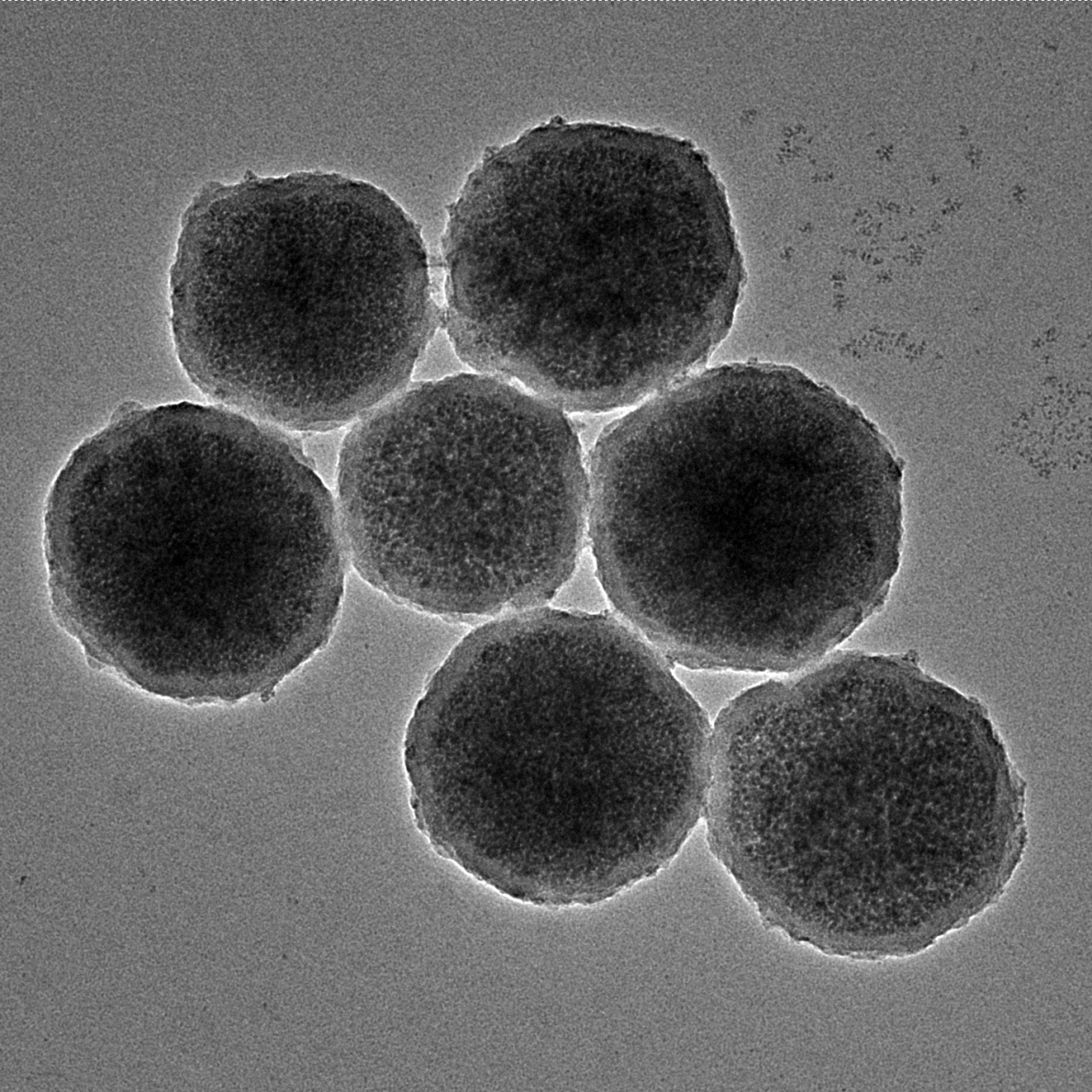Reviewed by Lexie CornerSep 9 2024
According to a study published in Small, a team of researchers from the UK and China has developed nanoscale robots that could potentially be used to treat brain bleeding caused by aneurysms.
 Engineered magnetic nanorobots about 300 nm in diameter. Image Credit: Jianrong Wu
Engineered magnetic nanorobots about 300 nm in diameter. Image Credit: Jianrong Wu
The technique could allow for precise, low-risk treatment of brain aneurysms, a condition that causes approximately 500,000 deaths worldwide each year. A brain aneurysm is a blood-filled bulge in an artery that can rupture and lead to severe bleeding, stroke, or paralysis.
The study proposes that nanoscale robots could be remotely guided to perform complex tasks within the human body, such as targeted drug delivery and organ repair, in a minimally invasive way.
Swarming Bots
The team, which included researchers from the University of Edinburgh, developed magnetic nanorobots about one-twentieth the size of a human red blood cell. These nanorobots carry blood-clotting medications within a protective coating that melts at specific temperatures.
In lab studies, hundreds of billions of these nanobots were injected into an artery and remotely guided as a swarm to the site of an aneurysm using magnets and medical imaging. Once inside the aneurysm, external magnetic sources caused the robots to cluster and heat up to their melting point, releasing a naturally occurring blood-clotting protein. This protein effectively plugs the aneurysm, preventing or stopping brain bleeding.
Lab Trials
The multinational team, co-led by physicians from Shanghai Sixth People's Hospital, affiliated with Shanghai Jiao Tong University School of Medicine in China, successfully tested their nanorobots in lab models of aneurysms and in a limited number of rabbits.
According to the researchers, these nanorobots have the potential to deliver and release medication directly to targeted areas in the body without leaking into the bloodstream, a critical test of the technology's safety and effectiveness.
This study could pave the way for future advancements, including potential human trials.
Promising Potential
Their findings could improve current treatments for brain aneurysms, which typically involve threading a microcatheter through blood vessels to insert metal coils that block blood flow or using a stent to reroute circulation in the artery.
Researchers believe this new procedure could reduce the risk of the body rejecting implanted materials and minimize the reliance on anti-clotting medications, which can lead to bleeding and gastrointestinal complications.
The technique also eliminates the need for surgeons to manually navigate a microcatheter through the brain's complex network of tiny blood vessels, a time-consuming process that can take hours during surgery. Larger brain aneurysms, which are challenging to treat quickly and safely with metal coils or stents, may particularly benefit from this method.
The study was led by a team from the UK and China, who had previously developed nanorobots for removing blood clots, a promising approach for stroke treatment.
Nanorobots are set to open new frontiers in medicine–potentially allowing us to carry out surgical repairs with fewer risks than conventional treatments and target drugs with pinpoint accuracy in hard-to-reach parts of the body. Our study is an important step towards bringing these technologies closer to treating critical medical conditions in a clinical setting.
Dr. Qi Zhou, Study Co-Lead, School of Engineering, University of Edinburgh
Journal Reference:
Wang, J., et al. (2024) Nanoarchitectonic Engineering of Thermal-Responsive Magnetic Nanorobot Collectives for Intracranial Aneurysm Therapy. Small. doi.org/10.1002/smll.202400408